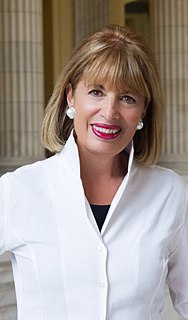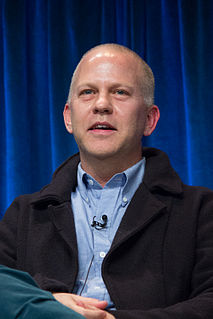A Quote by Kirsten Gillibrand
Women's voices aren't heard often enough. Congress should reflect the population, but with only 20 percent women in the Senate and 18 percent in the House, it just doesn't.
Related Quotes
During the first campaign, one of my jobs as my husband's spouse was to travel around the country and really listen to women. There were voices that were new to me: the voices of military spouses, many of them women, and veterans.... I was overwhelmed by their challenges, and the notion that we as a country don't even know that these women exist, because we live in a country where one percent of the population protects the rights and freedoms of the other 99 percent of us. I thought that if I had the opportunity to serve as First Lady, I was going to use this platform to be their voice.
Economists often talk about the 80/20 Principle, which is the idea that in any situation roughly 80 percent of the “work” will be done by 20 percent of the participants. In most societies, 20 percent of criminals commit 80 percent of crimes. Twenty percent of motorists cause 80 percent of all accidents. Twenty percent of beer drinkers drink 80 percent of all beer. When it comes to epidemics, though, this disproportionality becomes even more extreme: a tiny percentage of people do the majority of the work.
The Hispanic population grew by 4.7 percent last year, while blacks expanded by 1.5 percent and whites by a paltry 0.3 percent. Hispanics cast 6 percent of the vote in 1990 and 12 percent in 2000. If their numbers expand at the current pace, they will be up to 18 percent in 2010 and 24 percent in 2020. With one-third of Hispanics voting Republican, they are the jump ball in American politics. As this vote goes, so goes the future.
Ninety-nine percent of everyday things are things we don't need - that goes for regular visits to the hairdresser just as it does for clothing. What would it mean if we all consumed 20 percent less? It would be catastrophic. It would mean 20 percent less jobs, 20 percent less taxes, 20 percent less money for schools, doctors, roads. The global economy would collapse.
Since the 1950s (until the early 1990s), girls in Kabul and other cities attended schools. Half of university students were women, and women made up 40 percent of Afghanistan’s doctors, 70 percent of its teachers and 30 percent of its civil servants. A small number of women even held important political posts as members of Parliament and judges. Most women did not wear the burqa.


































